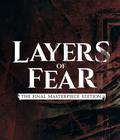The institute, part of the University of Southern California, works with Hollywood movie and video game specialists.
Disclosure of the CIA video game project follows the Pentagon's recent cancellation of a plan for an online gambling parlor designed to predict a Middle East terrorist attack. The Pentagon's gambling scheme led to the resignation of retired Navy Vice Adm. John Poindexter, head of the Total Information Awareness data-mining counterterrorism program.
A military official said the CIA video game is "a ridiculous and absurd scheme that makes Poindexter's project look good in comparison."
A second critic of the program said: "These absurd ideas about countering terrorism suggest that the war on terrorism has been a failure, that terrorists are still ahead and that the CTC does not know what it is doing. The key issue here is the CTC misspending funds on silly, low-priority projects, exactly the kind of thing that forced Admiral Poindexter to resign."
CIA spokesman Mark Mansfield defended the video project and called it an "innovative approach" to counterterrorism. The game will select a scenario that could involve analysts playing terrorist-cell leaders or members, a terrorist "money mover" or a facilitator, he said.
"For out-of-the-box thinking, we are reaching out to academics, think tanks and external research institutes that are critical in the fight against terrorism," Mr. Mansfield said. "If it will help us to prevent terrorist attacks, it is worthwhile."
A CIA analyst playing the game also could be placed in the role of CIA analyst or operations officer, a U.S. Customs agent or even a cooperative or hostile neighbor living next to a terrorist.
"Analysts would have to think and act inside the character they choose or are assigned," Mr. Mansfield said.
The goal, he said, is for "our analysts to become accustomed to looking at the world from the perspective of the terrorists we are chasing."
Richard Lindheim, the institute's executive director, said in an interview that the goal of the CIA game project is to train analysts.
"They will put their analysts in analytical specialities in one role or another and then change the roles," Mr. Lindheim said. "It's a learning tool."
He said the institute develops simulations, such as the virtual reality simulator that it installed recently at the Army's Fort Sill in Oklahoma.
The institute also makes video games.
"We think computer games are a really good way of imparting information," he said. "We don't call them games; we call them computer-based training aids."
A game developed by the institute for the Army, called "Full Spectrum Warrior" and designed to help soldiers conduct peacekeeping operations, has won awards, he added. The institute has also received $45 million from the Army for other projects, including the warrior game.
The Army game involves no shooting, Mr. Lindheim said.
"It's a decision-making strategy game," he said. "You never have a gun. What you do is issue orders and see the effect of those orders. That's the value of it."
Administration officials said the game is typical of the "politically correct" Army under recently retired Army Chief of Staff Gen. Eric Shinseki.
The CTC has come under fire from some in Congress for the intelligence failures related to the September 11 terrorist attacks.
The September 11 congressional committee stated that the CTC staff doubled from 400 to 800 after the attacks. Agency sources said that the number of people, including CIA and other intelligence and law-enforcement agencies, is now around 1,000.
The video game project is part of a $10 million "academic outreach" program at the Counter Terrorist Center, headed by a CIA analyst. Army officials say the analyst was responsible for derailing the career of a senior Army intelligence officer by making false claims of sexual harassment against the officer.
According to the officials, several Army officials objected to the CIA video game project because they feared disclosure of the game would undermine the service's work with the California institute for its transformation and training program.
The analyst and several other CIA counterterrorism officials have traveled to the institute and got VIP tours of movie studios in the area, according to administration officials.
Other projects being worked on by the California institute reportedly include Roman shields with skateboards that come off the sides of tanks, and foam sprayed by troops that can stop tank rounds.
The congressional joint inquiry report stated that in 1999 an internal CTC study found that the center "was unable to carry out more ambitious plans against al Qaeda for lack of money and personnel."
The CTC funding and personnel shortfalls were highlighted at a time when CIA Director George J. Tenet said the agency in 1998 had declared "war" on Osama bin Laden's al Qaeda group.
According to administration officials, several Army officials objected to the CIA video game project because they feared it would undermine the service's work in using the California institute for its transformation program.











